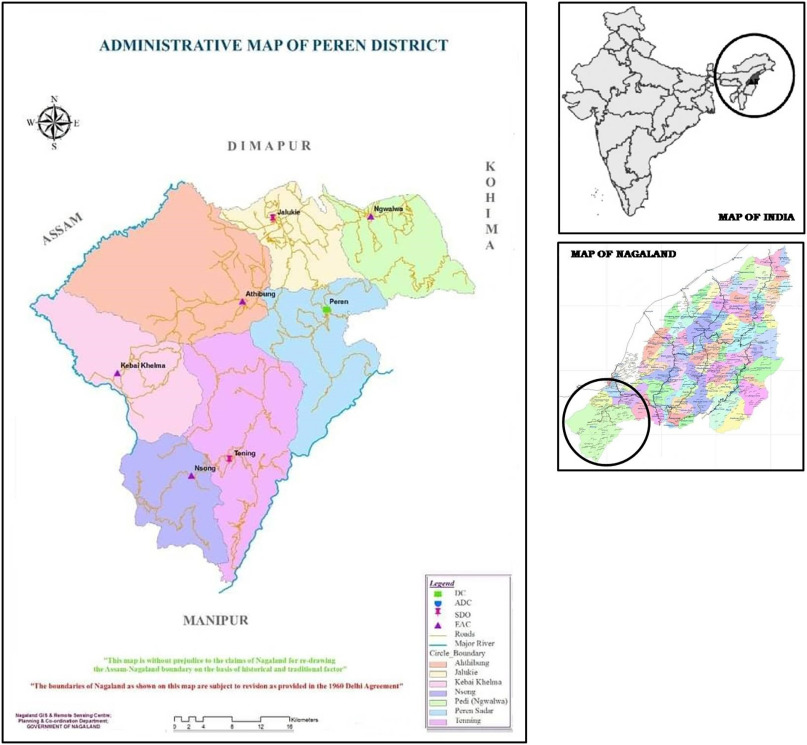Get to know us
About Us
Our Mission
RBA believes in strong collaboration with the people to undertake development that is integral, gender, culture and custom, education and environmentally sensitive to sustain socio-economic and people’s well being with active participation so that the people take the responsibility for their own destiny.
Our Vision
RBA visualize a just, integrated and equitable society where justice, peace and communal harmony prevail.

Our History - May 5, 1998
The Rongmei Baptist Association (RBA) was formed and established on May 5, 1988, with its Head Office and Headquarters located in Mission Hills, B Block, Keleilwa Ward No. 6, Jalukie Town, Peren District, Nagaland.
Recognizing the needs, issues, and challenges faced by various sections of the community—including children, youth, women, men, the elderly, and persons with disabilities—RBA initiated its philanthropic mission in Nagaland. It was officially registered as an organization on May 9, 1994.
The organization has focused its efforts on areas with high levels of poverty. Peren District, known for its rich biodiversity, is also one of the most underdeveloped regions in Nagaland. Witnessing the widespread poverty, lack of connectivity, inadequate healthcare facilities, limited access to knowledge, rising unemployment, and the degradation of rich biodiversity, RBA intensified its philanthropic activities in Peren District, where government intervention in relief and development efforts has been minimal.
Committed to serving all, regardless of caste, tribe, or race, RBA strives to promote both moral and physical development. Its work aligns with the Sustainable Development Goals, emphasizing communal harmony, gender equality, and environmental resilience. Guided by its vision of “Communal Harmony,” RBA continues to be a catalyst for sustainable development and positive change in the region.
What We Do
Capacity Building
The program includes the training and formation of SHG’s, Farmers Clubs, and Joint Liability Groups; skill development training for youths; and training on new techniques of mushroom cultivation. It also focuses on the promotion of SHG’s to federations, exposure and cross-learning opportunities, and credit linkage support. Additional components include training on organic farming, making Indigenous Micro Organisms (IMO), Bokashi pig rearing, and accounting training.
Livelihood & Economic Empowerment
The initiatives span across land-based, off-farm, and non-farm activities. Under land-based farming, the focus is on integrated vegetable farming at the homestead level and promoting organic fertilizers such as vermi-compost and Bokashi. Off-farm interventions include piggery, poultry, duckery, goatery, fishery, and mushroom cultivation. Non-farm efforts emphasize the promotion of traditional skills like mora and cane craft, traditional weaving as an income generation activity for women's groups, SHG and women’s thrift-micro credit programs, and the construction of community assets.
Natural Resource Management (NRM) & Climate Resilience
The Natural Resource Management (NRM) and Climate Resilience initiatives focus on the preservation and conservation of forests, along with the conservation and regeneration of important indigenous species. Key activities include the adoption of Sloping Agricultural Land Technology (SALT), development of horticulture systems, and raising awareness on payment for ecosystem services and carbon credit opportunities. The program also incorporates participatory assessment on climate change and disaster risk (PACDR), promotion of vermi-composting, soil conservation efforts, wetland development, and the NEN-Farm School, which provides training for youth and women.
Gender & Land Tenure System
The Gender and Land Tenure System program includes land mapping and training on land use planning, alongside gender training and promoting gender equality. It advocates for land rights for women and engages in awareness activities such as Childline 1098. The initiative also partners with platforms like the India Land Development Conference (ILDC) to strengthen dialogue and action around equitable land governance.
Water, Sanitation & Health
The Water, Sanitation, and Health program focuses on developing spring spots, constructing ring wells and water reservoir tanks, and improving access to clean water through irrigation canals, check dams, and Gravity Flow Systems (GFS). It also includes organizing health camps, vaccination drives—including awareness on COVID vaccination—and promoting nutritional food. Additionally, the program supports the construction of low-cost latrines to enhance sanitation infrastructure in the community.
